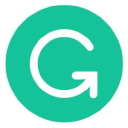Pivoting From A Cheap Flights Website To A Money Saving Browser Extension
Note: This business is no longer running. It was started in 2021 and ended in 2023. Reason for closure: Shut down.
Hello! Who are you and what business did you start?
Hi! My name is Ju Li and I am a co-founder of GetBuyLo.com. We’ve built a browser extension that’s like Honey but specifically tailored for flights. Basically, when you are at checkout on a supported flight booking site, it will automatically pop up and scan other flight booking sites for a lower price on the same flight.

We are not profitable at the moment as we launched during the COVID pandemic but early users are loving it. We’ve been featured in YCombinator’s Startup School newsletter and the front page of multiple subreddits.





































